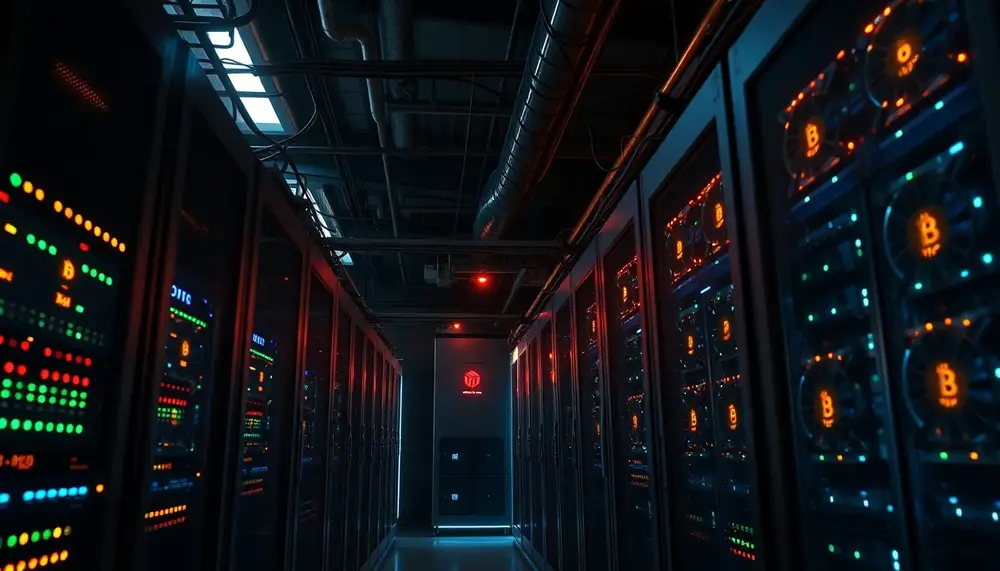Difficulty
Difficulty
Understanding 'Difficulty' in Bitcoin Mining
When talking about Bitcoin Mining, one word you're likely to hear mentioned often is "Difficulty". But what does this term mean, and why is it so important for those involved in mining operations?
Definition of 'Difficulty'
Simply put, Difficulty refers to the computational effort required to solve a problem in the Bitcoin Mining process. It is a way to measure how hard it is to generate a new block and earn Bitcoins as a reward.
'Difficulty' and Bitcoin Mining: An Intricate Relationship
The concept of Difficulty is vital in the world of Bitcoin Mining. Why? The answer is simple: The Difficulty level impacts the profitability of Bitcoin Mining. The higher the Difficulty, the more computing power a miner needs to solve architectural problems, and this directly affects the potential earnings.
How is 'Difficulty' Adjusted?
Bitcoin's Difficulty does not remain constant. Instead, it auto-adjusts approx every two weeks (or after every 2016 blocks mined) to preserve the average time of 10 minutes for finding a new block. The nature of this adjustment relies on the total computational power of the network. If more miners join the network, the Difficulty will increase, and vice versa.
The Importance of 'Difficulty'
Difficulty plays a crucial role in the Bitcoin network's balance and security. It maintains the block generation speed, despite fluctuations in the miners' network power. It is essential for keeping the Bitcoin environment stable, secure, and fair
In conclusion, understanding the concept of 'Difficulty' is integral to appreciating how Bitcoin Mining works and what affects its profitability.
Blog Posts with the term: Difficulty

This guide simplifies Monero solo mining with XMRig, covering setup and optimization to mine efficiently. It explains the benefits of using XMRig, necessary hardware requirements, and how to set up a Monero wallet for secure fund management....

Monero mining with CPUs is accessible and cost-effective due to the RandomX algorithm, which optimizes CPU performance over GPUs; top processors include AMD Ryzen 9 3950X and Intel Core i9-10900K. Benchmarking involves measuring hash rates and power consumption using software...

The article discusses the initial investment required for crypto mining in India, emphasizing costs related to hardware, setup, and software. It also highlights key technical specifications needed for mining rigs, such as GPUs and cooling systems, while stressing the importance...

A mining pool is a collaborative group of miners who combine their computational resources to increase the likelihood of successfully mining cryptocurrency blocks and sharing rewards, essential due to the high power demands that make solo mining nearly impossible. Setting...

Cloud mining allows individuals to lease processing power from remote data centers for cryptocurrency mining, offering convenience and lower upfront costs but potentially reduced earnings and risks of scams. Hardware mining involves owning equipment with greater control and profit potential...

This guide provides a comprehensive overview of setting up an Ethereum mining rig, covering essential components like GPUs and motherboards, as well as key concepts such as Proof of Work (PoW) and hashrate. By the end, readers will understand how...

Monero mining on AMD Ryzen CPUs is popular due to their high performance and efficiency; this article provides a guide for optimizing these processors, covering hardware selection, BIOS settings, and software configuration to maximize mining profitability. Key considerations include core...

Mining XRP directly is not possible; instead, miners can earn XRP by mining other cryptocurrencies and exchanging them for XRP. This guide covers setting up a secure wallet, choosing the right software like Unmineable or NiceHash, and configuring your mining...

Crypto mining on a Mac is possible but requires careful planning due to hardware limitations and software compatibility issues. To optimize performance, choose the right mining software like CGMiner or MacMiner, manage background processes, update your system regularly, and consider...

The article compares solo and pool mining for Monero, detailing their respective advantages and disadvantages. Solo mining offers full block rewards but is resource-intensive with inconsistent payouts, while pool mining provides more consistent earnings by combining computational power at the...

USDT, or Tether, is a stablecoin pegged to the US Dollar and issued by Tether Limited through fiat collateralization, ensuring each token is backed by real-world assets. It plays a crucial role in cryptocurrency trading due to its stability and...

Monero mining with XMRig involves using your computer's processing power to solve mathematical problems that validate transactions on the Monero network, earning you Monero coins in return. This guide covers setting up a Monero wallet, choosing a mining pool, downloading...

Monero mining involves validating transactions using computational power, with miners rewarded through a combination of decreasing block rewards and transaction fees. The unique tail emission mechanism ensures perpetual miner incentives by stabilizing the reward at 0.6 XMR per block once...

Mining pools allow miners to collaborate and increase their chances of earning rewards by pooling resources, making the mining process more accessible and decentralized. When choosing a pool, factors like fees, payment methods, reputation, size, and server location should be...

Bitcoin mining involves solving complex puzzles, requiring significant electricity consumption which impacts profitability; factors like hashrate, hardware efficiency, and regional electricity costs play crucial roles in determining energy expenditure. Technological advancements such as ASICs and smart software improve efficiency by...
